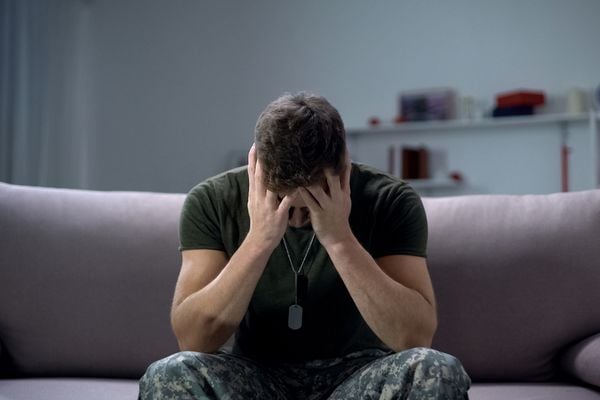
The comptroller’s report also criticized the government’s guidelines on who can be legally recognized for support under Israel’s Victims of Hostilities Compensation Law.
By Sveta Listratov, TPS
An estimated three million Israelis are suffering from post traumatic stress syndrome, depression and anxiety after more than a year of war, but the nation’s mental health system is not adequately meeting public needs, according to a State Comptroller report released on Tuesday.
“It is inconceivable that people have to wait half a year to see a psychiatrist,” said State Comptroller Matanyahu Englman, adding that he had warned the government of these failures a month after the attack, but the necessary reforms have not yet been fully implemented.
The comptroller, also known as the state ombudsman, periodically releases reports auditing Israeli preparedness and the effectiveness of government policies.
The report highlighted systemic failures in providing psychological support to survivors, evacuees and first responders, and estimated that three million people are not receiving proper care.
According to the report, Israel’s mental health infrastructure, which was already struggling before October 7, “failed to provide necessary treatment.”
The report found that 90% of those experiencing PTSD symptoms have not sought treatment, many citing long wait times as the main barrier. Even among those who tried, the average waiting period for treatment is 6.5 months.
Eiyar Segal, a clinical social worker specializing in trauma, emergency situations, and resilience training, told The Press Service of Israel that a major shift in treatment methods is required to address the overwhelming demand.
Segal spent 20 years as a mental health officer in the Israel Defense Forces.
“We need to move away from an over-reliance on individual therapy and prioritize group therapy, which has proven to be both effective and resource-efficient,” she told TPS-IL.
According to her, group therapy can treat 12 patients in the same time it takes to treat one person individually, allowing for a wider reach.
Key factors that help individuals recover from emergency trauma include strong social connections and a sense of purpose.
“People who actively engage with their communities, whether by volunteering, joining support groups, or maintaining close relationships, tend to cope better,” she told TPS-IL.
Segal also stressed the importance of structured routines and physical activity to help restore a sense of normalcy and control.
Overconsumption of distressing news and excessive exposure to traumatic content can worsen anxiety and prolong the stress response, she noted.
The comptroller’s report also criticized the government’s guidelines on who can be legally recognized for support under Israel’s Victims of Hostilities Compensation Law.
In particular, first responders and volunteers — who evacuated victims under fire and then spent weeks recovering hundreds of mutilated bodies — were left without government support for their own mental health care.
For example, the report found that only 1% of ZAKA volunteers from Tel Aviv and 13% from ZAKA Israel received psychological support.
Despite existing emergency scenarios predicting mass evacuations, the comptrollers’ report said the Ministry of Health was unprepared to handle the psychological fallout.
Services were initially staffed by volunteers with no official oversight, and many evacuees received no structured treatment.
“Building community support networks and integrating mental health education into daily life is crucial,” Segal told TPS-IL. “We cannot wait for another crisis—we need to proactively strengthen mental health services across the country.”
Mental health preparedness should not be an afterthought but a fundamental part of national security and community resilience, she insisted.
“Trauma doesn’t just disappear with time—it requires structured intervention. Investing in mental health today means a stronger, more resilient society tomorrow.”
Said Englman, “The State of Israel has a moral obligation to care for trauma victims. The government must ensure long-term funding and reform mental health services to prevent a national crisis.”
The post 3 million Israelis battle war-related mental trauma, anxiety, and PTSD appeared first on World Israel News.